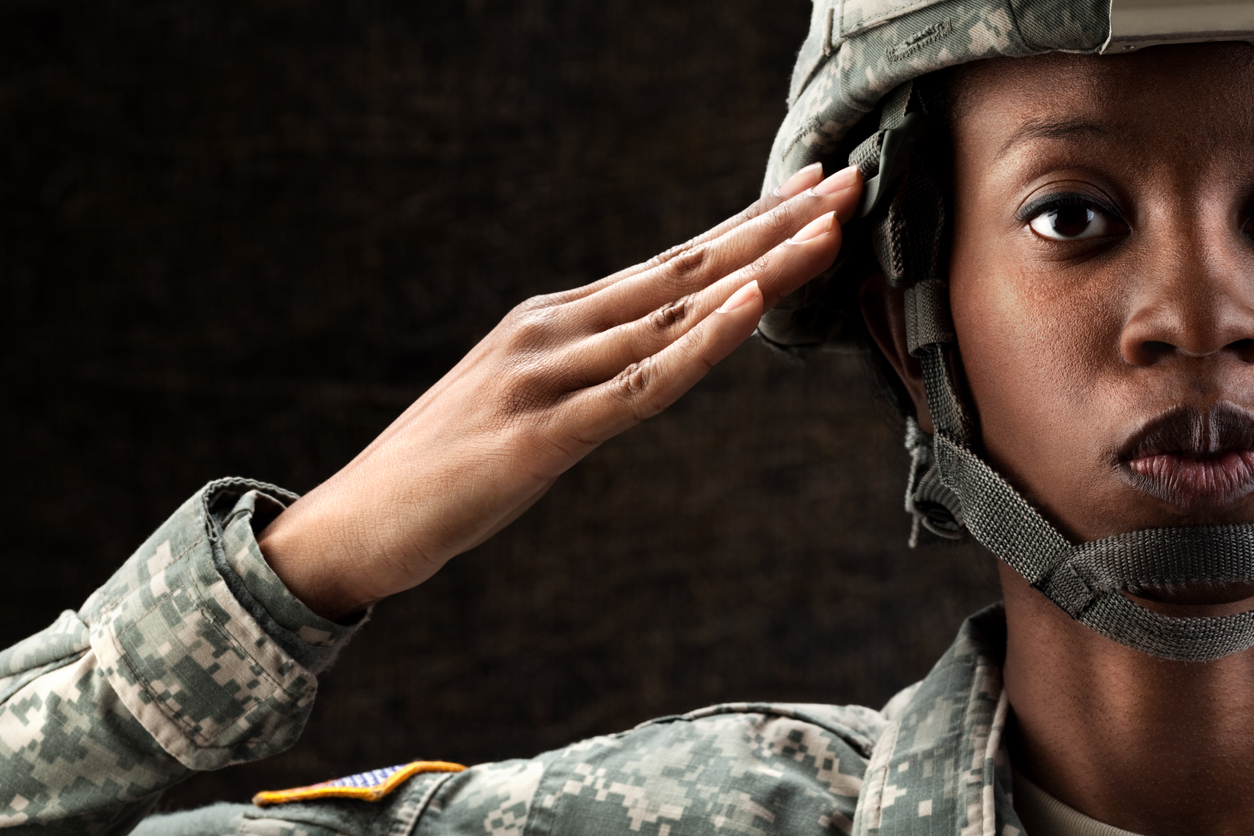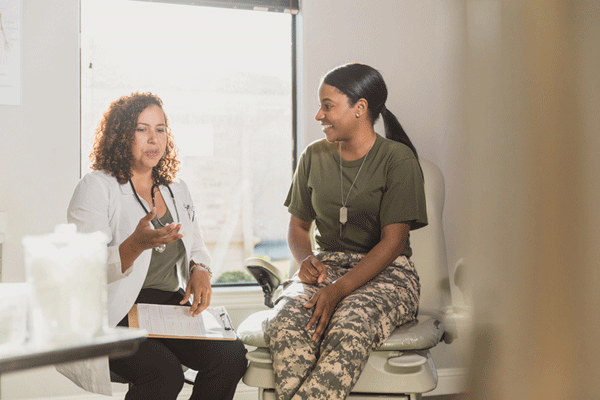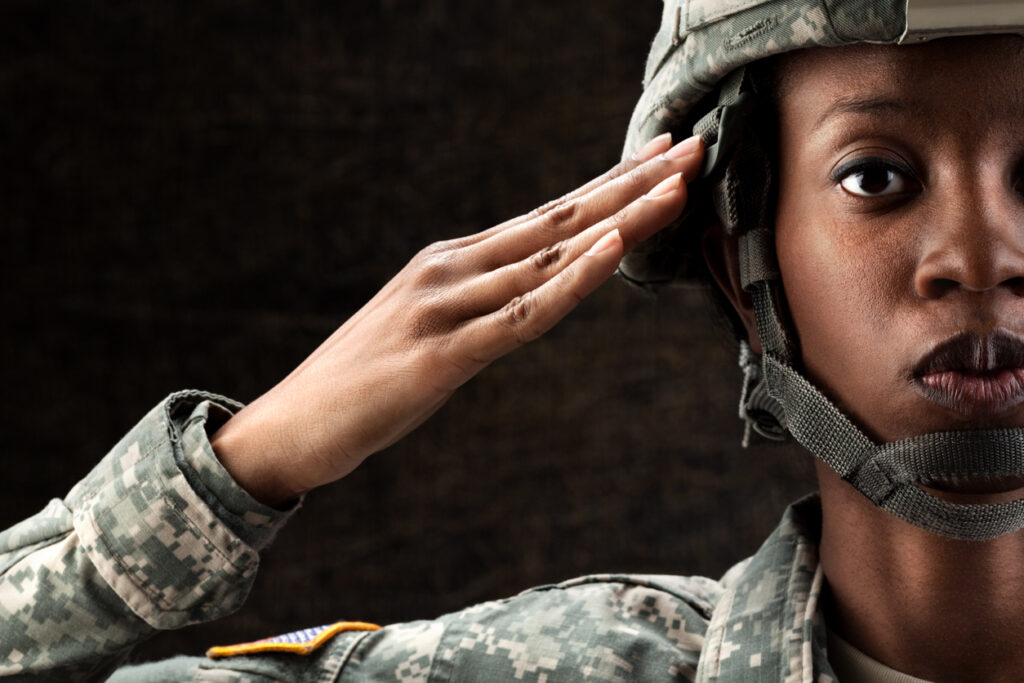When Air Force Capt. Amanda Huffman deployed to Afghanistan in 2010, she intended to stay on birth control pills to regulate her periods, so they would be predictable in a setting where it was hard to practice good hygiene.
But for some reason that she never quite understood, Huffman’s stateside doctors would only give her a six-month prescription — for a year-long deployment. Then, halfway through the deployment, she sought another six-month script, but the military physician would only dispense 30 more days.
“I can’t remember if he said I had to fill out all this paperwork, or if it was like, ‘Here you go, you are on your own,’” Huffman recalled. “But fortunately, I was able to reach out to a friend at my duty station who picked my prescription up for me [and sent it].”
Women have served in the U.S. armed forces regularly since the U.S. Food and Drug Administration (FDA) first approved an oral contraceptive in 1960. It hasn’t been until recently, though, that contraception has become readily available, with a growing awareness among military leaders that women’s health issues, including reproductive wellness, are a readiness concern.
“When you keep people healthy, you have more of a fighting workforce and your readiness improves,” said Toni Marengo, M.D., a former Navy lieutenant commander who serves as chief medical officer at Planned Parenthood of the Pacific Southwest. “But if you have people who have unintended pregnancy … it can increase the risk of preterm labor, preterm delivery, increase your cost, increase NICU [neonatal intensive care unit stays], increase people who aren’t ready to go back to work … there’s a snowball effect.”
Demand for contraception increases as more women serve
A Defense Department survey conducted in 2018 found that 16% of all military members reported not using contraception the last time they had sex, including almost one in four of the women who responded.
And despite having access to yearly wellness exams and birth control, including long-acting reversible contraception, 5.5% of military women reported an unintended pregnancy the previous year, higher than the 4.5% in the general U.S. population.
With just 39% of female service members and 15% of male service members reporting that they had ever received contraceptive counseling in the service, the branches have an opportunity to reduce the numbers of unwanted pregnancies and retain trained troops in their fighting forces.
“I think it always, to me, comes back to education, Marengo said. As you continue to educate people on the ground who are receiving the healthcare themselves, but also the providers of that healthcare, you can make a lot of difference.”
Birth control in the military is not just about preventing unwanted pregnancy. As Huffman noted, lessening or avoiding a period on deployment is a big issue, since women often don’t have ready access to sanitary products, or they face challenges maintaining proper hygiene in remote locations. Contraception also is prescribed to treat several medical diagnoses, including pelvic pain. And according to Marengo, women prefer to be on reliable birth control during training as well as during operations in case they are captured or become a victim of sexual assault.
For all of these reasons, women need better access to contraception, Marengo said.
New approaches to contraception in the military
Under Marengo and others’ guidance, the Navy introduced walk-in contraceptive clinics at their medical facilities and recruit training center. The clinics provide on-the-spot counseling and same-day appointments for contraception, including long-acting reversible methods that include intrauterine devices (IUDs) and implants.
The service now runs more than two dozen of these clinics for sailors and Marines.
And the Army and Air Force are beginning to embrace the idea as well, with the Air Force opening one at Beale Air Force Base in 2019 and the Army opening a clinic at Brooke Army Medical Center in San Antonio, Texas, last year.
But there remains a long way to go to expand access, Marengo said, adding that her clinic sees servicewomen as well as spouses and dependents of service members who must pay a copay for their prescription contraception if they don’t get them at a military pharmacy or clinic.
“I can tell you at a local level, hospitals are underfunded; they’re undermanned, and it’s going to take people … at the highest level rallying around this being important — contraception and family planning for all people, and then in particular for the military,” Marengo said.
The next steps
Given the U.S. Supreme Court decision to overturn Roe v. Wade, the widespread availability of birth control becomes even more important to servicewomen seeking to prevent unintended pregnancies.
The total number of military women who have sought abortions is unknown, since women who wish to terminate their pregnancies for reasons other than rape, incest or danger to their health must obtain and pay for them in private settings.
According to DoD data, just 91 abortions were performed in U.S. military hospitals from 2016 to 2021. Two out of three of those procedures were for active-duty servicewomen.
Given that 40% of military women (80,000 service members) live in states that now restrict abortions, the debate over women’s health services and reproductive care, including abortions, is increasing among DoD leaders.
Defense Secretary Lloyd Austin said in June that “[leaders are] examining the decision closely and evaluating our policies” to ensure that DoD was providing access to care “as permitted by federal law.”
“Nothing is more important to me or to this department than the health and well-being of our service members, the civilian workforce and DoD families,” Austin said.
The Department of Veterans Affairs, which provides healthcare to women who have left the service, announced in September that it would begin providing abortions in cases of rape, incest, and threats to the life or health of the mother.
Marengo said that with women making up 17% of the U.S. military, policies must change to ensure that they have access to all aspects of medical care, including reproductive health.
“The Dobbs decision … is forcing the military to make some more progressive decisions,” Marengo said. “Contraception and access are my big ticket. Let’s make it happen.”
Huffman agreed, saying that having children played a big role in her decision to leave the military.
“The healthcare benefits are one of the most important reasons for joining the military services, and so it’s really important to care for your whole physical health, including contraception,” she said.
















